Armed Forces Day: How has the pandemic affected military children?
- Published
- comments
WATCH: Elivia and Gregor tell us about their experiences as military children during the pandemic
A charity which helps children whose parents are serving in the armed forces wants more support for them in school, especially after the pandemic.
Little Troopers estimates that there are more than 100,000 children in UK schools who have parents connected to the military.
It can be tough being a military child during normal times, but lockdowns and restrictions gradually easing can also be challenging for lots of families.
A military child is a young person who has one or both parents serving in the British Armed Forces, regular or reserve.
The Armed Forces include the British Army, Royal Navy and Royal Air Force.
'I want people to know that military children are resilient'
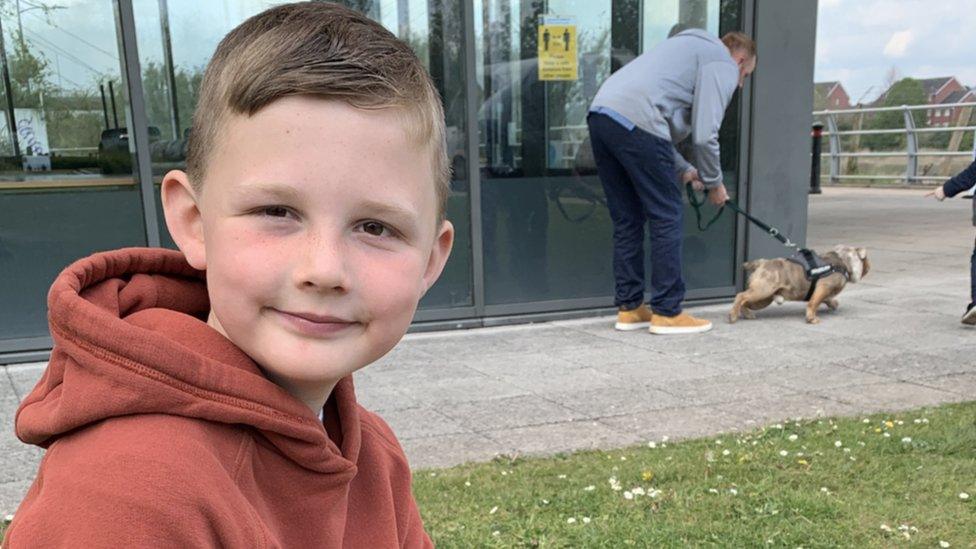
Gregor's dad is in the Royal Air Force so he decided to set up a club at his school to help other military children
Having a parent in the armed forces means that they can often spend long periods of time away from home working.
Communication isn't always possible so it can be hard for families to keep in touch.
It might also mean having to move, even to another country if the parent is needed somewhere else and is posted overseas.
Nine-year-old Gregor, whose dad is in the Royal Air Force, said: "It affects my life by my dad being away for long periods of time and missing important events."
It's similar for 11-year-old Elivia who told Newsround: "When we go out for special occasions, on holiday or my football matches, he's not there. It's really upsetting but I do love him."
She says it can also be tough having to move school and leave behind friends, but that it's made her "brave and independent".
"Going in to a school for the first time is actually really hard. You get butterflies in your stomach, but once you've moved around a lot, you actually get used to it and get more brave and independent," she added.
I want people to know that military children are very resilient and give up time with our parents so they can help others.
How has the pandemic affected military children?
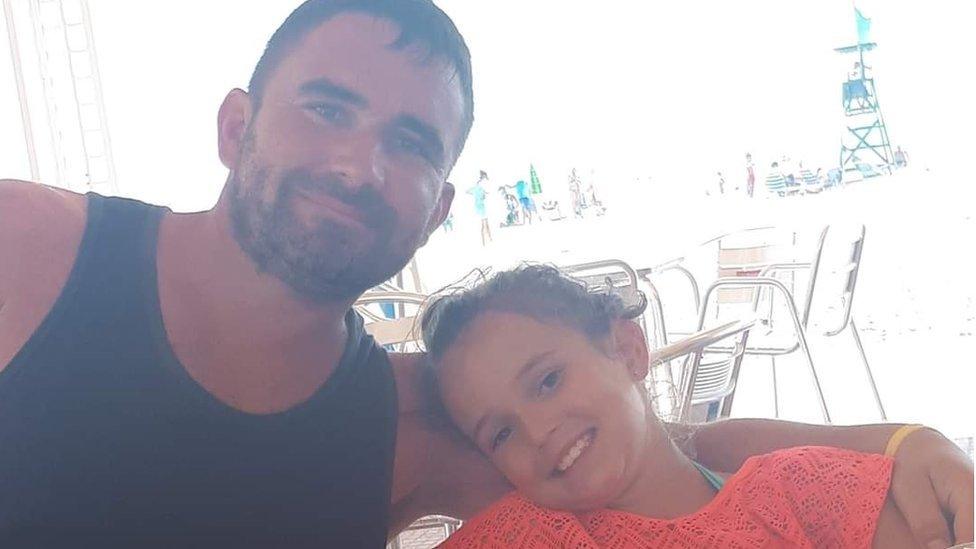
Elivia says it can be hard having a dad in the armed forces, but she loves him very much!
While military parents might usually spend long periods of time away, during the pandemic that hasn't always happened.
Lockdowns have meant some children, like Elivia, have been able to see parents much more than normal.
She said: "My dad was home more often than he usually is. I got to see him more than I ever have and I got to spend more time with him."
It's been the same for Gregor, but he has mixed feelings about restrictions easing. On one hand he says he's happy as it's a bit more normality, but on the other, he's sad because his dad has to go back to work properly and he won't get to see him as much.
He said: "The best thing about lockdown has been having my dad home for a long period of time. But now he's deployed for four months it's been really hard, after getting used to having him home more often."
Some children however have seen less of their parents, for example if they've had to isolate before and after a deployment.
Louise Fetigan, the founder of Little Troopers, told Newsround: "The pandemic has been really difficult for military children, they're having to navigate all the usual military life challenges such as deployment, but also the pandemic at the same time.
"Deployments especially overseas have often been extended throughout the pandemic and the rest and recuperation leave, that meant the parent would come home, often we've seen that that's been cancelled as well.
"So children have had to go months and months without seeing their parent and communication is often limited and sporadic. If children have a parent on a submarine for example, there's no communication so that's been really difficult."
She also highlighted how tough it's been for children who've had to move because of their parents' work.
"Lots of military children have had to move home and school throughout the pandemic and that's meant that they haven't been able to say goodbye to their friends and it's also meant that before starting a new school they maybe haven't been able to meet their new teacher or classmates," she added.
Keep strong and be kind because you never know what someone's going through.
More support needed for military children in schools, says charity
WATCH: Advice for military children and their classmates
Little Troopers says more support is needed for military children, especially after more than a year of lockdowns and restrictions.
Louise said: "Targeted supported for military children in school can be very inconsistent. Some schools have comprehensive intervention programmes and dedicated pastoral staff and other schools offer no support at all.
"It often comes down to how many service children are in the school."
The charity recently held a nationwide virtual roadshow in 200 primary schools and it's now launching a new course for secondary school teachers and staff to use to support the wellbeing of military children.
A spokesperson for the Department for Education said: "To support Service children there are already a number of measures in place, including provisions in the School Admission Code so that families can find a school place for their child when they move into a new area.
"There is also additional funding for schools to help them support Service children's wellbeing and education."
Gregor wanted to use his own experiences to help other military children, so he set up a special club at his school so they could share ideas for dealing with having a parent away.
It meant pupils could also meet up and talk about their experiences with other students who know what it's like to have a military parent.
He has his own special way of working out how long he's got before his dad comes home - he has one jar filled with pom poms and each day his dad is away, he removes one and puts it in another jar. Once the jar's empty he knows they'll be reunited!
Gregor's mum says he used to be a bit embarrassed about being a military child and his dad having to miss big events such as birthdays, but now, through starting the group, he's really proud to be one and wants to help other kids to feel the same way.
- Published25 October 2019
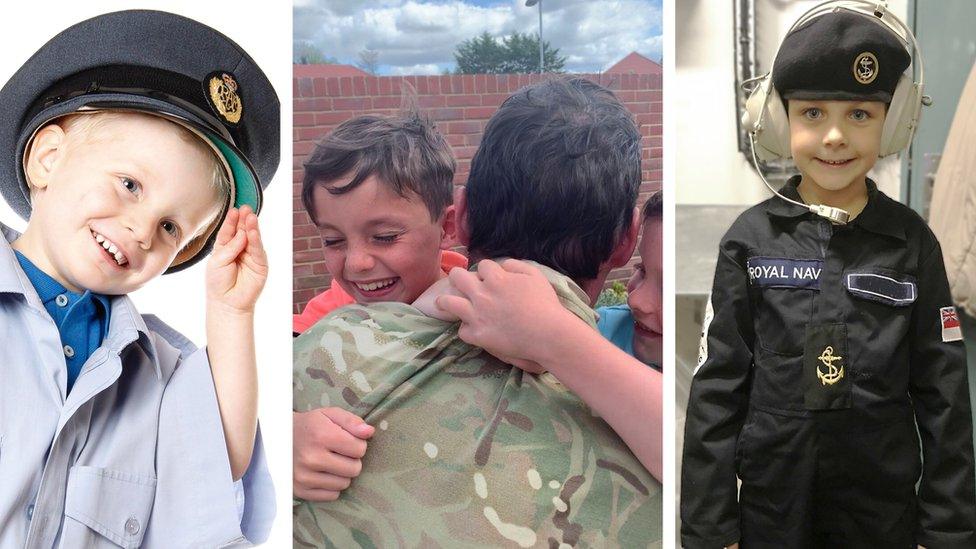
- Published10 November 2019
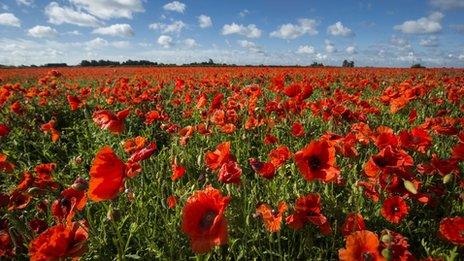
- Published26 March 2014
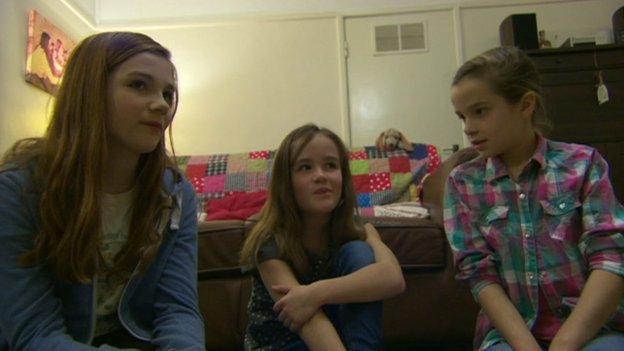
- Published27 August 2013

- Published26 March 2014

